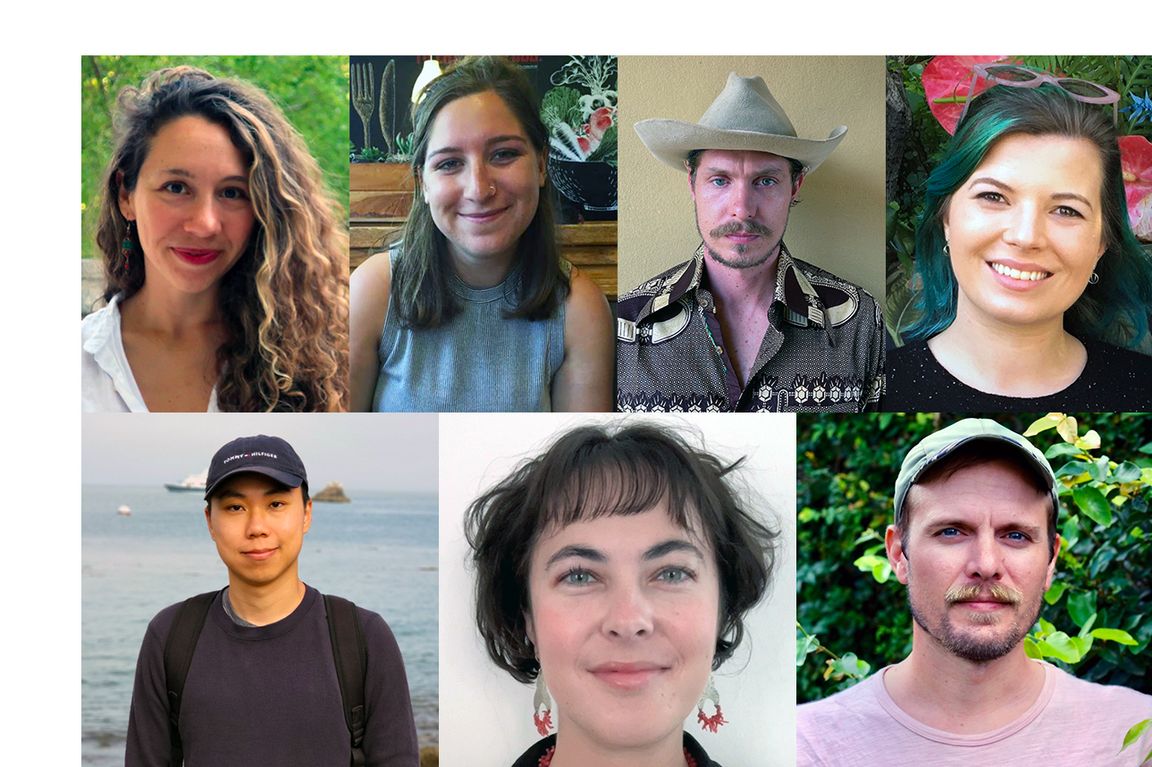UCLA’s honorees are (top row from left) Aurora Echevarria, Rebecca Waxman, Degenhart Brown, Carly Pope; and (bottom row) Yiming Ha, Jessie Stoolman, Benjamin Kantner.
Vania Sciolini
November 9, 2022
The Fulbright-Hays Doctoral Dissertation Research Abroad fellowship has been awarded to seven UCLA graduate students, the most chosen from any university in the nation.
Sponsored by the U.S. Department of Education, the Fulbright-Hays program provides awardees the opportunity to study aspects of a society or societies, including their culture, economy, history and international relations. The fellowship is designed to contribute to developing and improving the study of modern foreign languages and area studies in the U.S.
The 2022 UCLA Fulbright-Hays fellows come from diverse disciplines. They will conduct their research in the Republic of Benin, Taiwan, Mexico, Panama, Morocco, Spain, India, the United Kingdom and the Brazilian Amazon.
The Fulbright-Hays research abroad program at UCLA is administered by the Division of Graduate Education. More information is available at the UCLA Fulbright Fellowships website.
The 2022 awardees are:
Degenhart Brown, culture and performance, will study in the Republic of Benin. Using ethnographic fieldwork, Brown focuses on the pragmatism of syncretic religious practice, animal-based power objects, and the relationships between different species including pathogens and divinities to illustrate how traditional-medicine unions inform established knowledge of selfhood and well-being in contemporary Benin.
Yiming Ha, history, will study in Taiwan. Ha’s research focuses on changes to the military in Yuan and Ming China due to socio-economic factors and how the state responded to these changes. He is interested in how the shifts in military mobilization affected the state’s finances, what strategies the state employed in response, and the potential disconnect between the central and local officials in how to best manage the military.
Aurora Echavarria, urban planning, will study in Mexico. Echavarria’s research explores issues at the intersection of local public finance, urban inequality, and the political economy of land and property, with a focus on how local governments tax property in Latin America. Her fieldwork will employ experimental survey methods to examine how perceptions of public good provision influence levels of support for property taxation in Mexico.
Carly Pope, archaeology, will study in Panama. Pope’s research examines archaeological ceramics from Bocas del Toro, Panama, including locally made wares and foreign imports, and the potential they hold to elucidate both interregional systems of cultural interaction and community-level labor organization. She will conduct geochemical and mineralogical analysis of these materials to determine potential locations and methods of production.
Jessie Stoolman, anthropology, will study in Morocco and Spain. Her project focuses on how the Moroccan archival landscape shapes the collective memory of Black-Jewish history. She has published academic and non-academic writing in international journals, including Hespéris-Tamuda and Asymptote.
Rebecca Waxman, history, will study in India and the U.K. Waxman’s research examines occurrences of sexualized violence that marked turning points in modern India. By engaging in pressing historical and contemporary questions concerning sexual violence in India, she hopes to contribute to scholarship on gender, power and knowledge in colonial and postcolonial South Asia.
Benjamin Kantner, geography, will study in the Brazilian Amazon. His current project maps the relations between the capital city of Belém in the state of Pará and the Quilombola communities of the surrounding islands and waterways. This research will enhance recognition of the role traditional territories play in adapting urban areas to climate change and the extra-regional political networks increasingly used by them.
